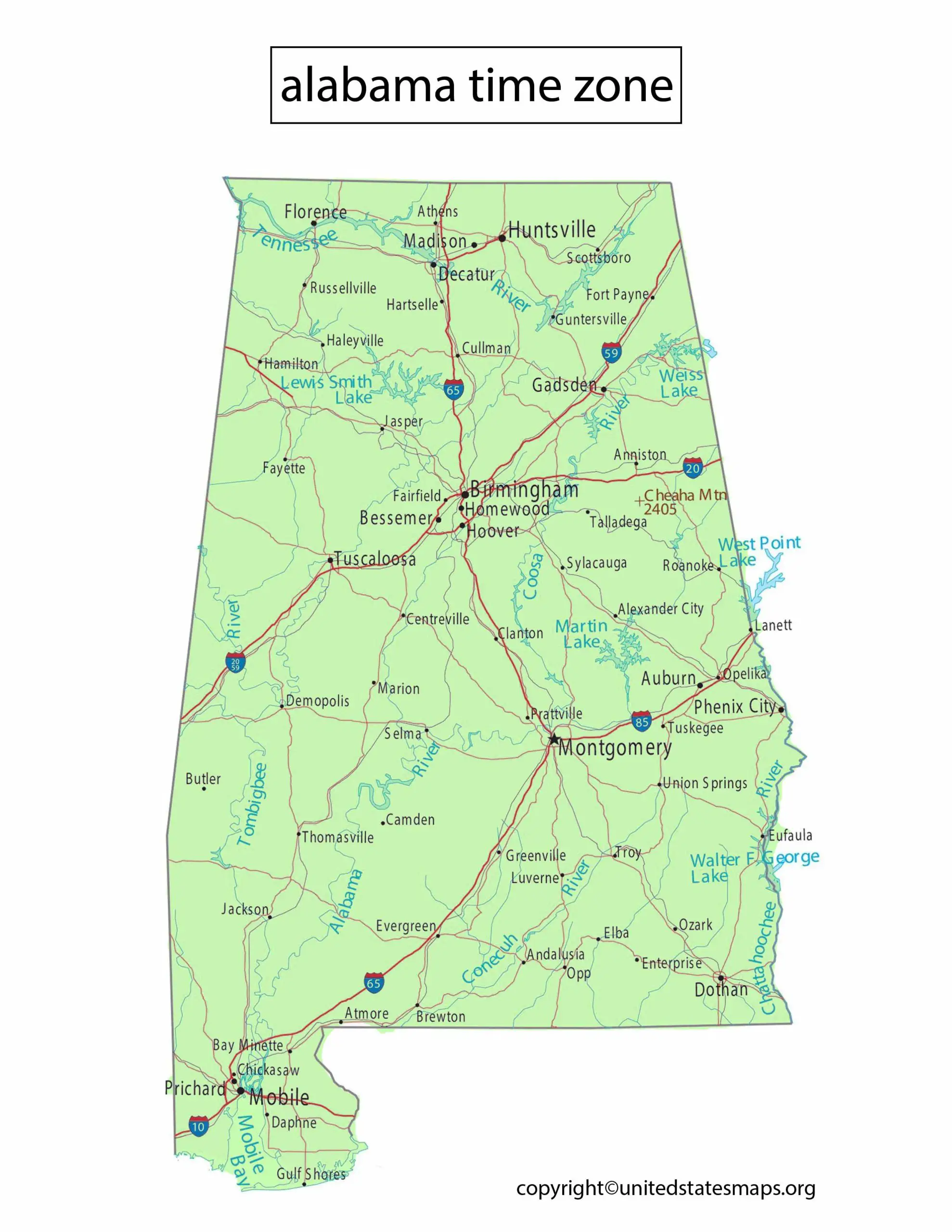
Alabama Time Zone: The Essential Guide To Understanding Local Time! – The Untold Secrets Revealed!
What Time Zone Is Alabama In?
Alabama is located in the Central Time Zone (CT), also known as UTC-6 during standard time and UTC-5 during daylight saving time. This means that Alabama is six hours behind Coordinated Universal Time (UTC) during standard time and five hours behind UTC during daylight saving time.
When Does Alabama Observe Daylight Saving Time?
Alabama observes daylight saving time from the second Sunday in March to the first Sunday in November. During this period, clocks are moved forward one hour, resulting in more daylight in the evenings.
Why Does Alabama Observe Daylight Saving Time?
Alabama observes daylight saving time to conserve energy. By moving clocks forward one hour during the summer months, people can take advantage of the longer daylight hours, reducing the need for artificial lighting and saving energy.
What Are The Benefits Of Daylight Saving Time?
Daylight saving time offers several benefits, including:
- Energy conservation: By moving clocks forward one hour during the summer months, people can take advantage of the longer daylight hours, reducing the need for artificial lighting and saving energy.
- Increased outdoor activity: Daylight saving time encourages people to spend more time outdoors in the evenings, which can promote physical and mental well-being.
- Reduced traffic congestion: Daylight saving time can help reduce traffic congestion during the evening commute by providing more daylight for people to travel home.
What Are The Disadvantages Of Daylight Saving Time?
Daylight saving time also has some disadvantages, including:
- Sleep disruption: Moving clocks forward one hour in the spring can disrupt sleep patterns, leading to fatigue and reduced productivity.
- Health risks: Some studies suggest that daylight saving time may be associated with an increased risk of heart attacks, strokes, and other health problems.
- Inconvenience: Daylight saving time can be inconvenient for people who work early morning or late evening shifts, as well as for those who travel frequently.
Is Daylight Saving Time Controversial?
Daylight saving time is a controversial issue, with proponents and opponents alike. Some people believe that the benefits of daylight saving time outweigh the disadvantages, while others argue that the negative effects are too significant. The debate over daylight saving time is likely to continue for many years to come.
What Is The History Of Daylight Saving Time In Alabama?
Alabama first adopted daylight saving time in 1918, as part of a national effort to conserve energy during World War I. However, the state repealed daylight saving time in 1967, only to reinstate it in 1974. Since then, Alabama has consistently observed daylight saving time.
Are There Any Exceptions To Daylight Saving Time In Alabama?
There are no exceptions to daylight saving time in Alabama. All of the state’s counties observe daylight saving time from the second Sunday in March to the first Sunday in November.
What Is The Time Difference Between Alabama And Other States?
Alabama is in the Central Time Zone, which is six hours behind Coordinated Universal Time (UTC) during standard time and five hours behind UTC during daylight saving time. This means that Alabama is one hour behind Eastern Time and one hour ahead of Mountain Time. Alabama is two hours ahead of Pacific Time.
How Do I Set My Clock For Daylight Saving Time In Alabama?
To set your clock for daylight saving time in Alabama, simply move it forward one hour on the second Sunday in March. On the first Sunday in November, move your clock back one hour to return to standard time.
What Happens If I Forget To Change My Clock For Daylight Saving Time?
If you forget to change your clock for daylight saving time, you may be late for appointments or miss important events. It is important to remember to change your clock on the second Sunday in March and the first Sunday in November.
Is Daylight Saving Time Here To Stay In Alabama?
The future of daylight saving time in Alabama is uncertain. There have been several attempts to repeal daylight saving time in the state, but none have been successful. However, the debate over daylight saving time is likely to continue, and it is possible that Alabama could eventually repeal daylight saving time in the future.
What Are Some Interesting Facts About Daylight Saving Time?
Here are some interesting facts about daylight saving time:
- Daylight saving time was first proposed by Benjamin Franklin in 1784, but it was not widely adopted until the 20th century.
- The United States is not the only country that observes daylight saving time. Many countries in Europe, Asia, and South America also observe daylight saving time.
- Daylight saving time can have a significant impact on the economy. A study by the U.S. Department of Energy found that daylight saving time saves the United States approximately $1.4 billion in energy costs each year.
Conclusion
Daylight saving time is a complex issue with both benefits and disadvantages. Whether or not daylight saving time should be observed in Alabama is a matter of debate. However, it is important to be aware of the facts about daylight saving time so that you can make an informed decision about whether or not to support it.
Leave a Reply